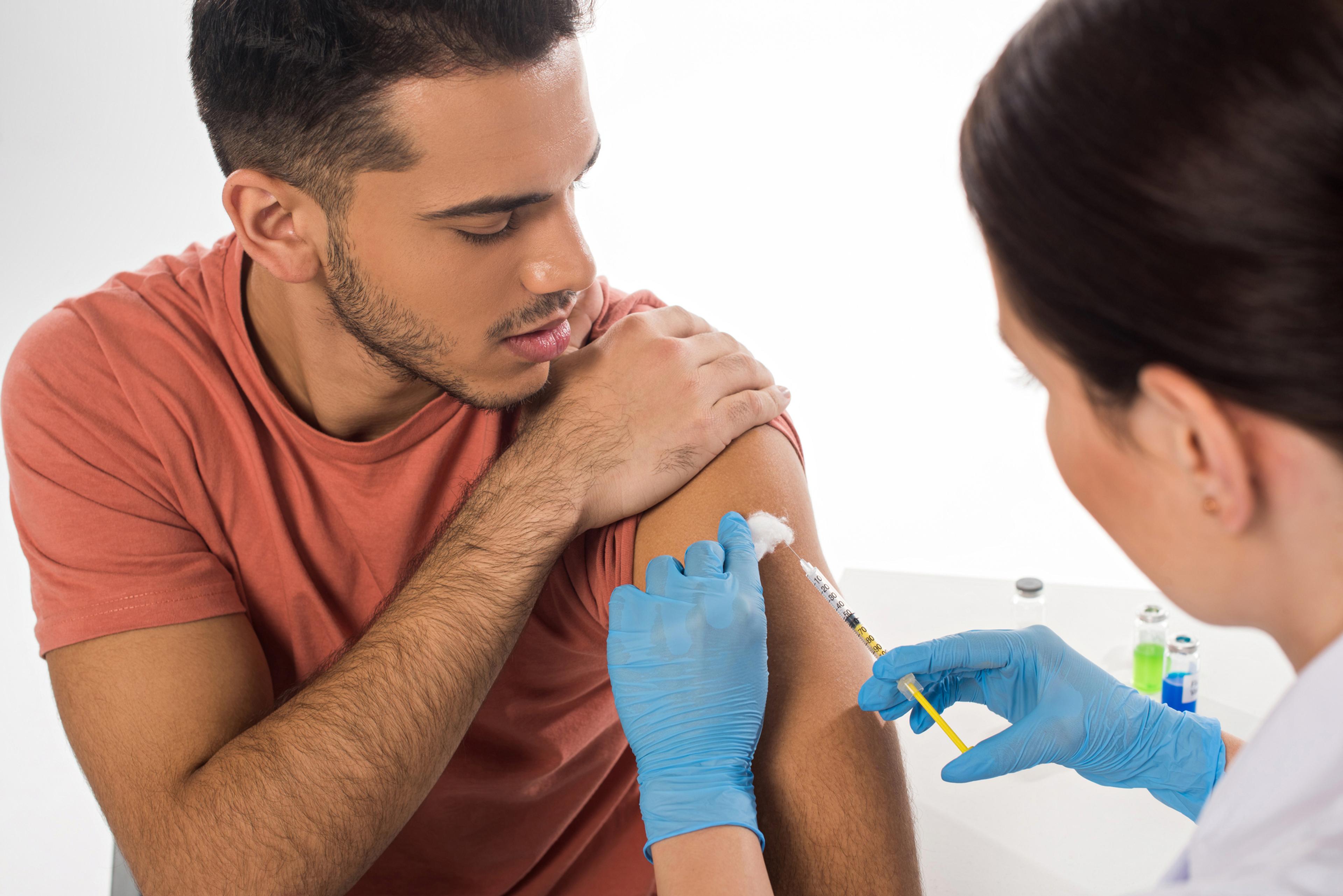Prevention,Flu Season,Vaccines,Children's Health,Family Health,Chief Medical Officer,For You,COVID-19
How to Prepare Now for the Tripledemic of the Flu, COVID and RSV

James Grant, M.D.
| 3 min read
James D. Grant, M.D., is executive vice president an...

During the fall and winter months of 2022, hospitals across the country were stretched thin due to a peak in patients with respiratory illness. However, it wasn’t due to COVID-19 alone. Last year, there was an epidemic of three respiratory illnesses at the same time – COVID-19, influenza and respiratory syncytial virus (RSV).
Incidences of the RSV virus were particularly high last year, with a hospitalization rate about double the amount of a typical year. The surge in infants and children with RSV last year overwhelmed many children’s hospitals across the United States.
This “tripledemic,” as many have called it, strained hospitals, emergency rooms and doctors’ offices nationwide and resulted in more than 235,000 ER visits during its peak week.
Experts are preparing for another tripledemic this coming fall and winter, centered around vaccinations to prevent serious illnesses. As in past years, manufacturers have updated the COVID-19 vaccines to include the most recent variants. New formulations are available this fall that target XBB.1.5, the Omicron variant of the virus that causes COVID-19.
And while COVID-19 and influenza immunizations have been available in past years, this year two new RSV vaccines have been endorsed by the U.S. Centers for Disease Control and Prevention for older Americans. The single-dose vaccines should be available by fall for those aged 60 and older.
Here’s how individuals and families can prepare now and stay healthy in the upcoming viral season:
- Get the annual flu shot now. Each year, the composition of the flu vaccine changes to accommodate the flu strains that researchers believe will be more common in the upcoming flu season. The CDC recommends getting this shot in September or October.
- Get the newest COVID-19 shot. The newest COVID-19 vaccine has been approved by the U.S. Food and Drug Administration and has been recommended by the CDC, and will be available soon. These updated vaccines target the Omicron variant, which should offer protection against all Omicron strains.
- For those aged 60+, get the RSV vaccine. It is recommended that individuals aged 60 and older talk with their physician about the risks and benefits of the RSV vaccine and make the decision together on whether and when to get it. Physicians can advise whether the RSV vaccine should be given at the same time as other vaccines.
- For infants, consider the new nirsevimab RSV vaccine. The CDC approved this vaccine for infants in early August. The dosages are different for infants less than eight months old and infants between eight and 19 months old. It’s a good idea for parents to discuss the risks and benefits of this vaccine with their child’s doctor.
- Remember hand hygiene. Throughout flu season and afterwards, remember to practice appropriate hand hygiene. Thorough hand washing with soap and water for at least 20 seconds is preferred. When soap and water is not available, use hand sanitizer that’s at least 60% alcohol.
Those at high risk for serious illness should take extreme care, including older adults, those who are immunocompromised, adults with chronic heart or lung disease, adults living in nursing homes or long-term care facilities, as well as young children and infants.
Individuals should talk with their physician regarding immunization recommendations specific to their health history or risk factors.
James D. Grant, M.D., is senior vice president and chief medical officer at Blue Cross Blue Shield of Michigan.
Read more:





